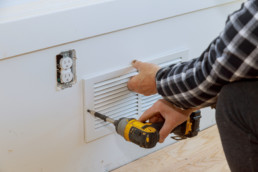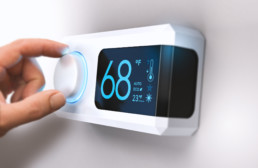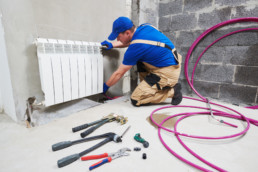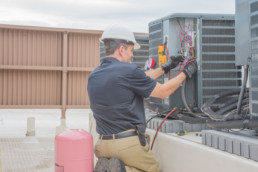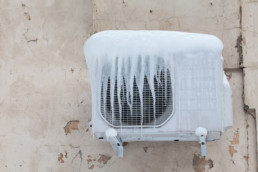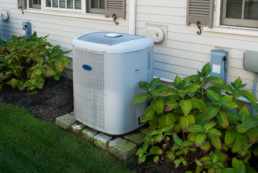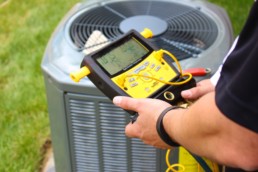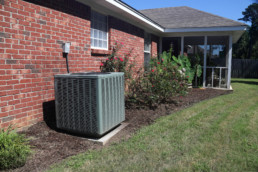How to Prepare Your House for a Hurricane: 5 Helpful Tips
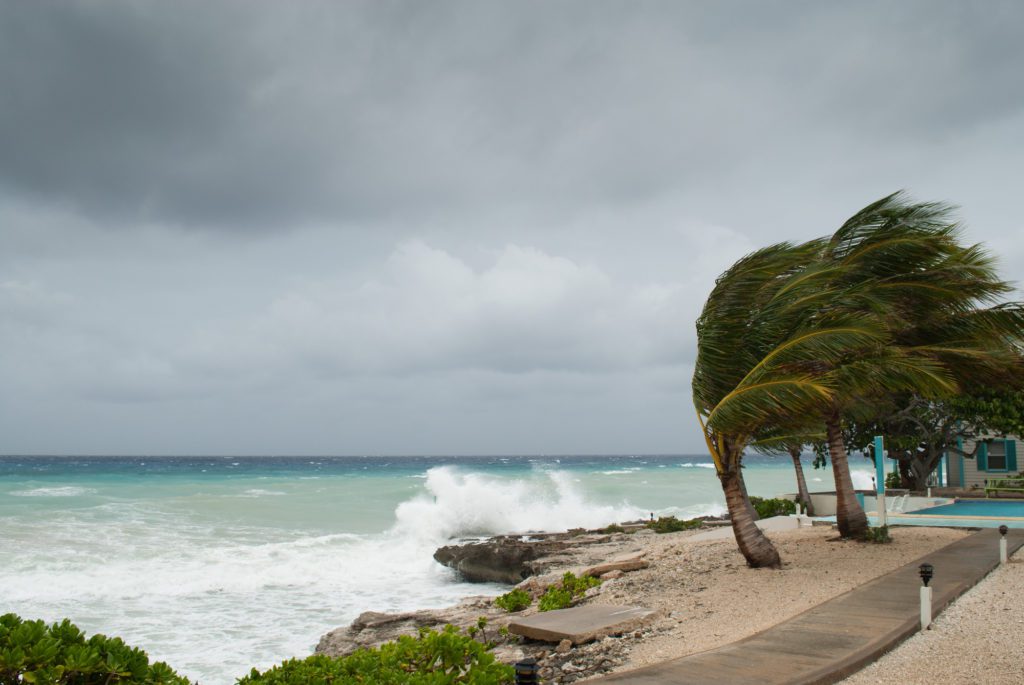
Hurricane season is here. Is your home ready to withstand a storm? NOAA has already predicted an above-normal hurricane season, so now is the time to think about how you'll prepare your home for any potential storms.
The good news is that you have time before the peak of the season to figure out how to prepare your house for a hurricane. We've got 5 tips for you to help you make sure your home is as protected as it can be. Read on to learn more.
1. Cover Your Air Conditioner
Your outdoor air conditioning unit it susceptible to any flying debris or large items that are not secured outside. Check with your air conditioner manufacturer to see what they recommend. Some covers will void the warranty, so make sure that whatever you cover the unit with will not impact your warranty.
It's also wise to have preventative maintenance done on your unit at the start of each season (the start of summer coincides with the start of hurricane season) to make sure everything is working properly.
2. Install Surge Protection
A whole-home surge protector is a relatively inexpensive way to protect your home from any power surges or power flickering. They are typically connected to your home's electrical service box and will keep any harmful electrical currents from impacting your home in the event of a power surge.
This is especially important for appliances like your air conditioner, as a power surge could destroy the entire unit. You should also turn your air conditioner off during a hurricane, as repeated power interruptions can damage the unit.
3. Secure Outdoor Units
Many homes built in Florida use a hurricane pad for the outdoor air conditioner unit. These pads are heavier than normal concrete pads and meet code requirements for hurricane protection. When building your home or installing a new air conditioner, make sure that a hurricane pad is used.
If you don't have a hurricane pad, you can also secure your outdoor unit with hurricane straps, or take an extra level of protection by using hurricane straps attached to a hurricane pad.
4. Stock Your Emergency Kit
A well-stocked emergency kit is one of the most important things to do to prepare for hurricane season. Things like water, non-perishable food, batteries, chargers, and flashlights are necessary, as a loss of power that could last several days or even weeks is a real possibility.
You may also want to consider a home generator as well, to power your house even in the event of a power failure. Florida has a period of time every year where hurricane supplies are tax-free. Take advantage of this, especially for a big purchase like a generator.
5. Secure Outdoor Areas
Any outdoor furniture or other items become air-borne missiles in a hurricane. Make sure to secure this furniture with straps or bring it inside. Flying lanai furniture can do a lot of damage to your home and your air conditioning unit outside.
You also don't want to have to fish it all out of your pool after a hurricane, so do yourself a favor and make sure it's secured.
How To Prepare Your House for a Hurricane 101
Use these tips for how to prepare your house for a hurricane to get ready for the upcoming hurricane season. One of the most important things you can do now is to stock your emergency kit and do preventative maintenance on your HVAC unit.
Contact us today to come out to make sure your unit is ready for hurricane season.
Stuck Inside? Here's How to Improve Indoor Air Quality Like a Pro!
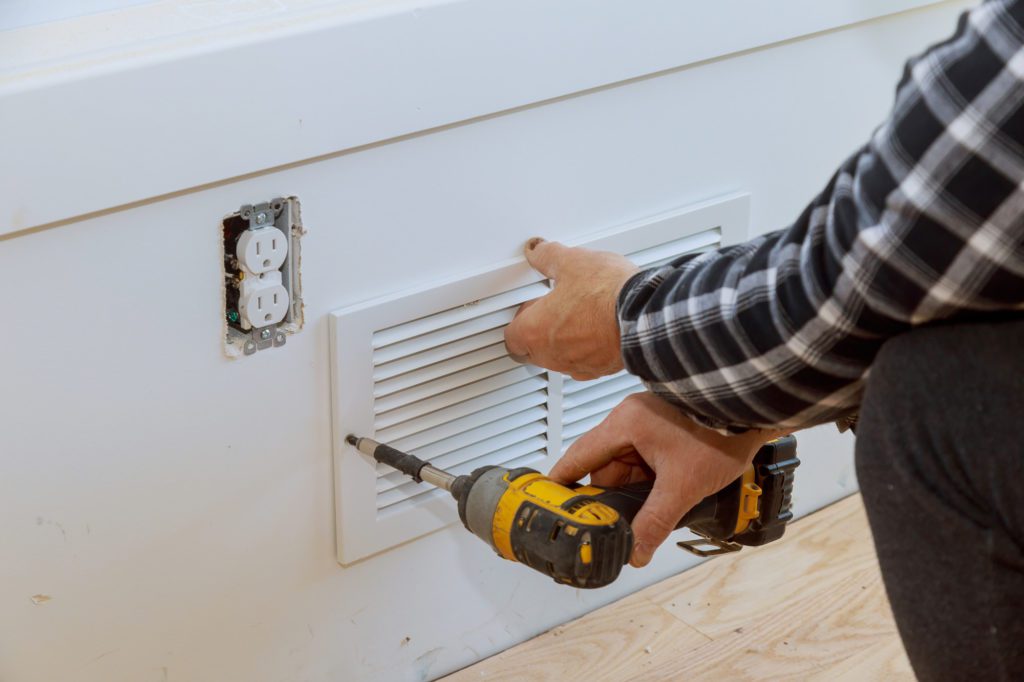
Did you know that the air inside the house (where Americans spend 90% of their time) often has two to five times more pollutants than outdoor air?
When people think about air pollution, they focus on the outdoors. However, indoor air quality also needs a lot more scrutiny as it has a more significant impact on your health than you imagine.
Here’s a quick look at four vital ways you can improve the air quality in your home.
1. Ventilate the Space
Before you sink your teeth into more complicated solutions for improving air quality indoors, you need to tackle the basics.
Does your home have adequate air flowing to expel stagnant air?
If not, make it a habit to open your windows and doors as that boosts circulation and rejuvenates the air quality within your home.
But what of those who live in cities or other areas where the air is full of pollutants?
Well, one tip is to identify the time of day when there's the least dust and other contaminants in the air for you to open your window and doors and promote air circulation.
2. Install Cooking Vents
Although it may come as a curious fact to many, the kitchen is the one area of your home through which air pollutants enter your house.
For example, when you use a gas stove, you’re releasing harmful contaminants such as carbon monoxide and nitrogen dioxide. Even if you switch to an electric over, you’ll still be producing these same pollutants only at a lower level.
Thus, you should be turning on your kitchen vent when you begin cooking to improve the air quality.
The cooking vent can be part of the door frame or window in your kitchen if you don’t plan on doing more work to fit it. Alternatively, the vent can also come as a stand-alone frame that you can retrofit at will.
3. Clean Your Carpet and Rugs Regularly
From the moment you install rugs or carpets in your home, they begin acting as their air filter. The rugs and carpets will trap particles and dust within their fibers over time.
The longer you go without cleaning your rugs and carpets, the more dust and particles that accumulate in them.
To avoid polluting your air in this manner, you should institute a weekly cleaning regimen for all rugs and carpets in your home.
4. Regularly Maintain Your HVAC Unit
Much like the carpet and rugs in your home, your HVAC unit works to trap dust and other pollutants in the air. That leads to building up of these pollutants in your system.
When you’re looking for the right HVAC maintenance plan, you need to zero on how regular it addresses air filters and ducts.
A good HVAC maintenance plan will ensure air filters are changed every 30 days (for fiberglass ones) or six months (for pleated filters).
Additionally, such a plan should factor in duct inspection every three to five years if you're to avoid the build-up and circulation of contaminants.
Lift the Indoor Air Quality in Your Home
You spend more time indoors than outside, which makes the quality of indoor air around you a more critical issue. Make it a habit to allow for more air circulation within the home or office while also ensuring you regularly maintain the HVAC system for you to maintain high air quality indoors.
Ellsworth's Heating & Cooling is a certified and multi-award-winning air conditioning company passionate about exceeding customer expectations. Talk to us today for air conditioning services that put your needs first.
Why is My Air Conditioner Not Turning On? This is Everything to Know
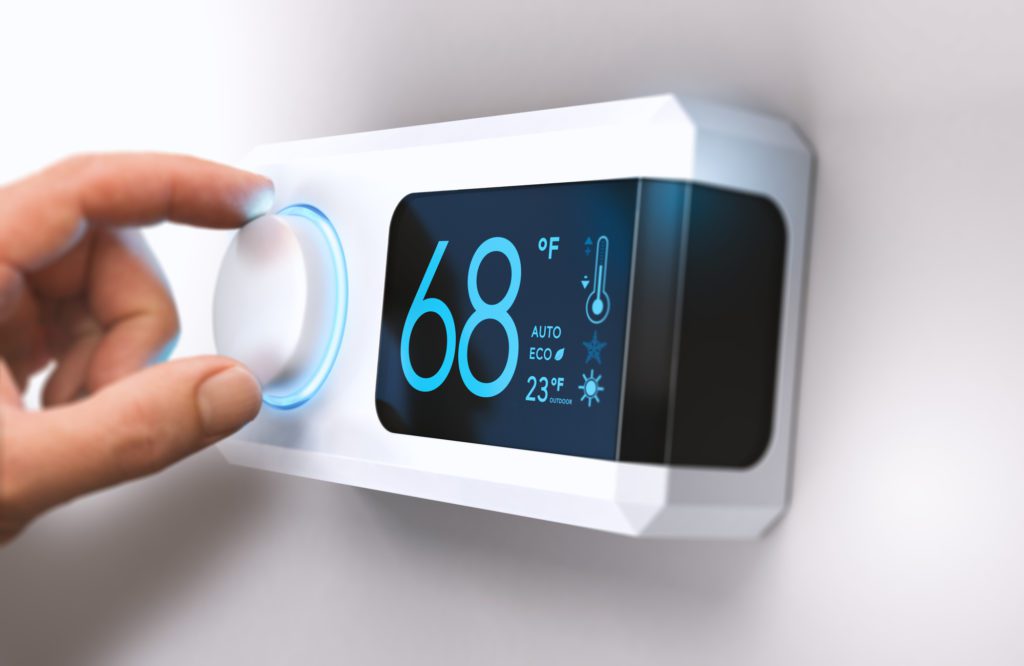
It's a hot summer day, and you switch on the AC. After a few minutes, you notice your air conditioner is not turning on.
You don't know why the AC is not working, and you have no expertise in AC repair.
What can you do?
If your AC is not coming on, you may have a circuit breaker problem that prevents unit functionality. You may encounter the same circuit breaker problem if the condenser unit won't work either. In both cases, you can reset the circuit breakers to fix the issue.
If a reset fails, you may have to hire a professional to remedy the problem. This article will provide a comprehensive guideline on AC problems. Read further if you wish to know more.
Circuit Breaker Remedies
A flipped circuit breaker means that your AC unit may have overheated while in operation. A circuit breaker issue benefits your home because it prevents house fires.
You may have a circuit breaker issue for the following reasons:
- Old appliances
- Units consume too much electricity
- Too many appliances working at once
Check the circuit breaker panel of your home and look for any flipped switches. Return the breaker to its normal setting, and check your AC unit.
Thermostat Problem
If the circuit breaker isn't the issue, you could have a faulty thermostat. A broken thermostat cannot send signals to your unit.
The following issues could cause a thermostat malfunction:
- Dead batteries
- Breaker issue
- Defective panel fuses
To spur your thermostat into action, check the electrical or mechanical components of the unit for any signs of debris or soot. From there, use compressed air to clean the dirty areas. Further, check the wiring and other parts for signs of corrosion.
You can also replace the thermostat outright. When all else fails, you may have to hire a professional for further guidance.
Dirty AC Filter
Even though a clogged filter is less likely to shut down your AC entirely, it's still a likely factor. A dirty filter can cause airflow issues and hamper the performance of the unit.
- Example: A dirty air filter that allows debris and dirt into the unit can clog the mechanics. Excess particles in your unit may cause wear and tear that will lead to an eventual breakdown.
Check the filter if you haven't replaced it in over three months. You can find the filter near the air duct. You could also find it in the blower system if have an AC/heater combo.
Look through the owner's manual for the proper size and filter type. You can buy the filter from your local hardware store, or you can buy it online.
Air Conditioner Is Not Turning On
If your air conditioner is not turning on after numerous troubleshooting measures, contact an AC professional. You'll find that many AC repairmen offer quality rates that can fit within your budget.
Are you frustrated that your AC won't turn on? Contact us today to learn how an AC professional can save you the hassle of exhaustive DIY repairs.
How To Find The Right HVAC Maintenance Plan To Fit Your Budget Needs
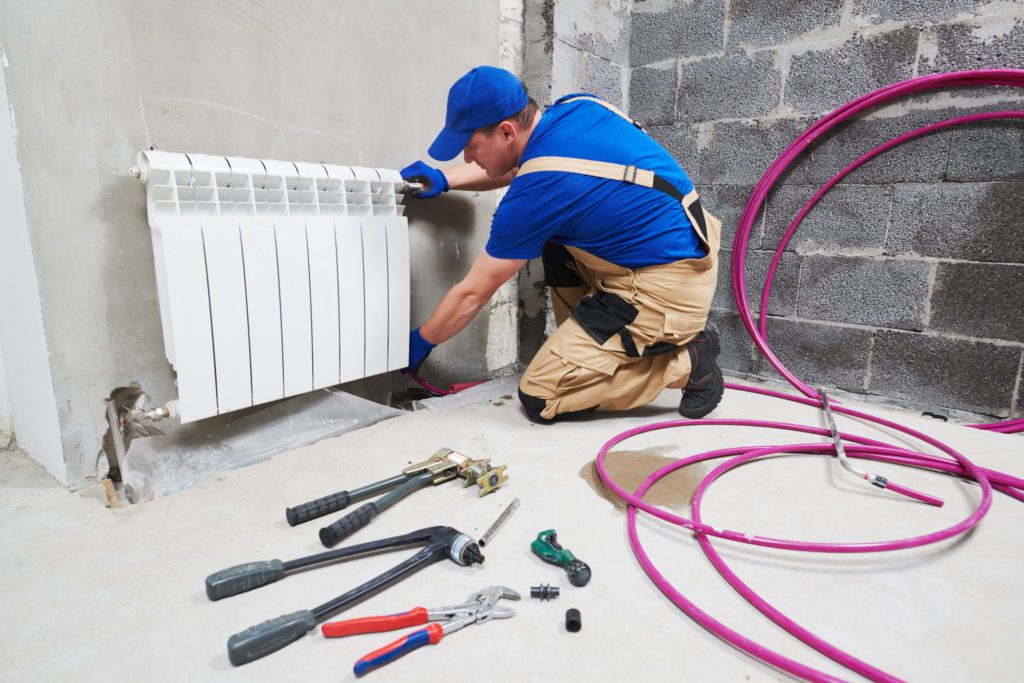
Your HVAC system could last between 12-20 years, so how do you ensure that you get the most from this expensive component in your home. Like most things, regular maintenance helps to extend the life of your HVAC system.
So, should you consider an HVAC Maintenance Plan? Read on to learn how to evaluate an HVAC maintenance plan and determine the right plan for you.
The Right HVAC Maintenance Plan for You
Below are a few factors to consider when choosing an HVAC maintenance plan.
Your Personal Needs
Regular maintenance means cleaner air for you and your family. If your family suffers from allergies or asthma, you will benefit from regular system cleaning and maintenance.
Age of Your System
Newer systems need less maintenance than older systems. So consider the age of your system along with the portion of the country in which you live. Harsh climates can add additional wear and tear on systems requiring more regular maintenance and parts replacements.
Costs Versus Budget
If your HVAC system goes down, how long can you and your family tolerate being without it? There are more upfront costs for a maintenance plan, but many include emergency repair savings if your system goes down. Without a maintenance plan, you may pay a higher one-time visit fee for system evaluation.
All of these factors are important to consider as they relate to your personal budget.
What is Included? What is NOT Included?
Check the fine print, what is included? If emergency visits and regular check-ups are included you are probably better off getting an HVAC maintenance plan, especially if your system is older.
Compare Prices
What is the out of pocket costs for a visit? How many maintenance visits are included in the maintenance plan? How much is your peace of mind worth? All of these are questions that you must answer as you compare plans and prices.
If your system is new and you don't need regular evaluations, a plan may not be the right solution for you. However, older systems, ones that are important to your family's health or comfort all suggest that a maintenance plan can save you money and peace of mind.
Now that you understand the basics of an HVAC maintenance plan, check out our affordable plans to choose the one that works best for you.
Do You Need an HVAC Maintenance Plan in Lee County?
We have been in Lee County for 50 years, we know the area, we know the weather, and we know HVAC maintenance. We pride ourselves on treating our customers fairly and honestly. If you need to establish an HVAC Maintenance Plan, then we are the company for you.
Contact us, George Sr. credits our success to our company-wide philosophy: "We always try, above all, to be honest, and reputable and make every possible effort to put the customer first." find out for yourselves if this is true.
How to Know When It's Time to Repair or Replace HVAC Systems
The first air conditioner was invented more than a century ago in 1902. Heaters have been used in different forms, like cast iron stoves, for even longer.
Since their creation, these systems have been improved many times. Unfortunately, this doesn't mean they last forever.
Many homeowners wonder how they can tell if it's time to repair or replace HVAC systems. Continue reading to find out everything you need to know.
How Long Does a HVAC Unit Last? | HVAC Unit Lifespan
Many homeowners wonder what the expected lifespan of their heater or air conditioner is. The age of a system also helps when deciding whether to repair or replace your system.
The average lifespan of HVAC systems include:
- Air conditioner - 15 to 20 years
- Furnace - 15 to 20 years
- Heat Pump - 16 years
Keep in mind these are only averages. If a unit is used more than average, it might need replacement sooner. Units that are used less often might last longer.
Another factor in whether your HVAC system will last its lifespan is how well maintained it is. If you keep up on routine maintenance, your system might last longer.
When to Repair HVAC Systems
If possible, it's better to repair your unit rather than replace it. Repairs generally cost less than replacing HVAC systems. They're also quicker and generally more convenient.
If your system is appropriately aged, you can usually repair it. Some situations warrant replacing the system regardless of its age.
When to Replace HVAC Systems
Besides age, a primary consideration in whether to repair or replace HVAC systems is the cost. If a repair costs more than a new installation, it's time to replace your AC or heater.
You'll also want to replace HVAC systems if any of the following apply:
- Your air conditioner uses R-22 Freon (which is being phased out by the government)
- Your heating or cooling costs are steadily rising
- Your unit is unable to keep your home at a comfortable temperature
- Any damage makes the unit unsafe (such as when the risk of carbon monoxide poisoning is increased)
- You see more dust accumulation throughout your home than usual
These are just a few of the most common signs it's time to replace your air conditioner or heating system. Sometimes, it can be hard to tell whether you should repair or replace your unit.
Repair or Replace HVAC Unit?
If you're not sure whether to repair or replace your systems, ask for a professional opinion. An HVAC technician can help determine the best course of action for a faulty heating or cooling system.
Homeowners should always avoid working on air conditioning or heating systems themselves. There are a lot of risks involved only a trained professional fully understands.
Besides obvious breaks, there are a few other reasons you might want to call a professional HVAC technician. These include:
- Hearing strange noises when your AC or heater is running
- Smelling unusual odors coming from your HVAC systems
If you ever have doubts about the safety of your heating or cooling system, call a professional. It's always better to be safe than sorry.
If possible, find a technician who is certified to work with specific brands. For example, we're a certified Trane dealer. This would make us a great choice if you need to repair or replace a Trane AC unit.
Contact Ellsworth's Heating & Cooling for HVAC Repair or Replacement Service in Fort Myers, FL
The most significant considerations when deciding whether to replace or repair your HVAC systems are age and price. In some situations, other things need to be considered.
Do you have more questions about when it's time to replace HVAC systems?
Contact us today. One of our associates would be more than happy to answer any questions you may have.
Why is My Air Conditioner Frozen and What Should I Do to Fix It?
When you live in a warmer climate, you depend on your HVAC unit to keep you cool. However, AC units malfunction sometimes, and it's common for them to freeze.
If you had to ask, why is my air conditioner frozen? The solution might be easier than you might think.
In this article, we'll help you identify why your air conditioner freezes.
Read on to get started.
What Causes Your Air Conditioner to Freeze?
There are several factors that can cause your air conditioner to freeze. It's important to rule out all of these reasons in order to get to the root of the problem.
Dirty Evaporator Coils
If the evaporator coils in your AC unit get clogged with dirt and debris, it could restrict the airflow. When this happens, the system often freezes.
Refrigerant Leak
Refrigerant is an important element to keep your AC unit running as it's supposed to. If the refrigerant doesn't flow from point A to point B, it can cause a number of issues with the unit, including freezing.
When the refrigerant leaks, it almost always causes the unit to freeze.
Dirty Air Filter
A clean air filter is necessary for the AC unit to work as it should. However, when excess debris builds in the filter, it stops the airflow.
The restricted airflow will cause the unit to freeze.
What to Do When the AC Freezes?
Once you know that your air conditioner is frozen, there are a few steps you can take to remedy the issue.
Let the AC Thaw
When your AC unit is frozen, the first thing you need to do is let it thaw.
First, you need to turn off the thermostat and turn the fan on. By taking this step, the A-coil will start to defrost. The defrosting process could take a few hours, depending on the unit.
Since thawing the unit will result in some excess water, it's important you locate the dripping pan. Failure to do so could result in water damage and the last thing you need it to deal with another issue.
Check the Air Filter
As we mentioned before, a dirty air filter often causes the AC unit to freeze. If you noticed your unit is frozen, the first thing you need to do is check the air filter.
The solution is quite simple - open the air cover and check the filter. If you notice the filter is dirty, all you have to do is replace it.
Replacing the filter is one of the most inexpensive repairs to the unit.
Start the Unit Again
Once you let the unit thaw and you replace the filter, you can start the unit on again. If the air comes out cool, then you fixed the problem.
However, if the air is room temperature, you might want to call a professional.
Why Is My Air Conditioner Frozen? This Is How You Fix it
Why is my air conditioner frozen? Now that you know the many reasons why your AC unit might be frozen, it's time you try to fix your unit.
If the AC unit is frozen, try checking the filter, turn off the unit or call a professional.
Are you in the Fort Myers or Naples area, and you need an HVAC professional? If so, give us a call today.
Air Conditioning Maintenance Plan Fort Myers
To be sure you get great service from your air conditioner, it means you need to get an AC repair plan. Knowing about how to get this work will help you whether you want the work for your business or home air conditioner.
If you choose a maintenance plan that gives you the best repair service, you can always rely on your air conditioner to work.
Here is what you need to know about having an air conditioning maintenance plan in Fort Myers.
Go Through the Entire List of What is Included in the Plan
Maintenance plans are one of the best things that you can get for your air conditioner. It lets you pay for a subscription plan so that your repair service is paid for ahead of time.
Be sure that you get a list of everything that you'll get with your maintenance plan, and which tiers of plans they have.
The maintenance plan that you get needs to address your air compressor, drain tube and other parts. Ask the air conditioning professional what brand of equipment they use also, so you can read the reviews and make sure that it is quality equipment.
Make Sure it Has Everything You Need
So what should you get from your AC maintenance plan?
Choosing great HVAC service will help you keep your air conditioner at its absolute best. The maintenance plan should at least have carbon monoxide testing, a gas valve inspection, pressure checks, seasonal safety inspections, and air filter changes.
These air conditioning plans are issued in the form of a contract, so you should read through all of the details. It will let you know how many house calls per year you receive as part of the plan, along with a schedule of when you should get the repairs.
Compare between a few different repair plans to be sure that your air conditioner always works. It will save you a lot of trouble during the hot Fort Myers summer season.
Consider the Costs of Air Conditioning Repair Relative to Getting a Plan
If you are comparing and contrasting air conditioner maintenance plans in your city, be sure that you also think about the costs. Compare the price you will pay without a plan versus what you will get as part of your repair plan.
Make the most cost-effective decision so that you can find out how to get repairs without paying too much. The more that you know about your repairs and how much they cost, the better the decisions you will make.
Buy an Air Conditioning Maintenance Plan in Fort Myers
If you're interested in getting an air conditioning maintenance plan in Fort Myers, these are the things you need to know.
Since Fort Myers is known to get heat and sunshine year-round, choosing the right maintenance plan is a great step to take. Our company can assist you if you are trying to buy a repair plan for your home or business.
Schedule your air conditioning services with us when you need help.
Air Conditioning Maintenance Plans
Like many other options in your home, an HVAC system is nothing short of an important asset. So, why not keep it in good use?
An air conditioning maintenance plan saves you money on servicing down the road.
Keeping things up-to-date and in working order means fewer breakdowns. A well-serviced HVAC leads to a reduction in repair costs and utility bills. It also means dwelling in a home with healthy air quality.
It's time to extend the lifespan of your system.
If you've been considering the health of your system, you need to read this. Let's explore the importance of an air conditioning maintenance plan.
Good Air Conditioning Maintenance Leads to Fewer Repairs
As HVAC systems age, normal operations breaks them down. During that process, moving parts—the motor, belts, etc,—wear down.
Regular maintenance leads to less costly repairs.
Keeping a system cleaned and lubricated protects the internal parts of the system. Systematic check-ups on the refrigerant levels and coils keep the system from freezing. All of which can cost you thousands in repair.
Preventative servicing helps you hone in on suspected issues early to avoid major damage.
Improved Performance
A well-maintained system is a high-performing system. Routine upkeep is all about making sure your system operates at peak performance.
Consistent inspections and cleanings ensure the HVAC system performs at higher efficiency levels. In the course of a maintenance appointment, a technician checks the wiring, fuel line, and levels.
They calibrate the unit to check it for future reliability and efficiency. A technician will also inspect for mechanical concerns to identify any needed repairs.
Comfort and Air Quality
One of the most important aspects of an HVAC system is that it blows quality air and provides comfort.
You can't ensure that if you don't schedule planned maintenance. The performance of the system impacts comfort. Dirty coils, ignition problems, and obstructions in the burner corrupts the system.
Issues with the humidity controls ensue, affecting the capacity of the HVAC unit. Also, filthy drain pans and ducts spill allergens into the air, making it unsafe for people with asthma or allergies.
Periodic maintenance restores the unit's performance, improving air quality and comfort.
Reduction in Utility Costs
When in an HVAC unit is not operating at full capacity, it cycles more than usual. A system that cycles more than often burns unnecessary energy, creating more cost.
Having a technician come and calibrate your system, raises the capacity. In turn, the unit cycles less, cutting utility costs significantly.
Get a Maintenance Plan
Regular air conditioning maintenance saves your unit and your wallet. By putting a maintenance plan in place, you preserve the life of your system.
Review the service dates for your unit. If you haven't had a professional give it a thorough inspection, schedule a maintenance appointment right away.
Need more help from a professional? Check out our a/c services and get an expert's opinion about the health of your system.
AC Not Working? 6 Signs Your HVAC is About to Call It Quits
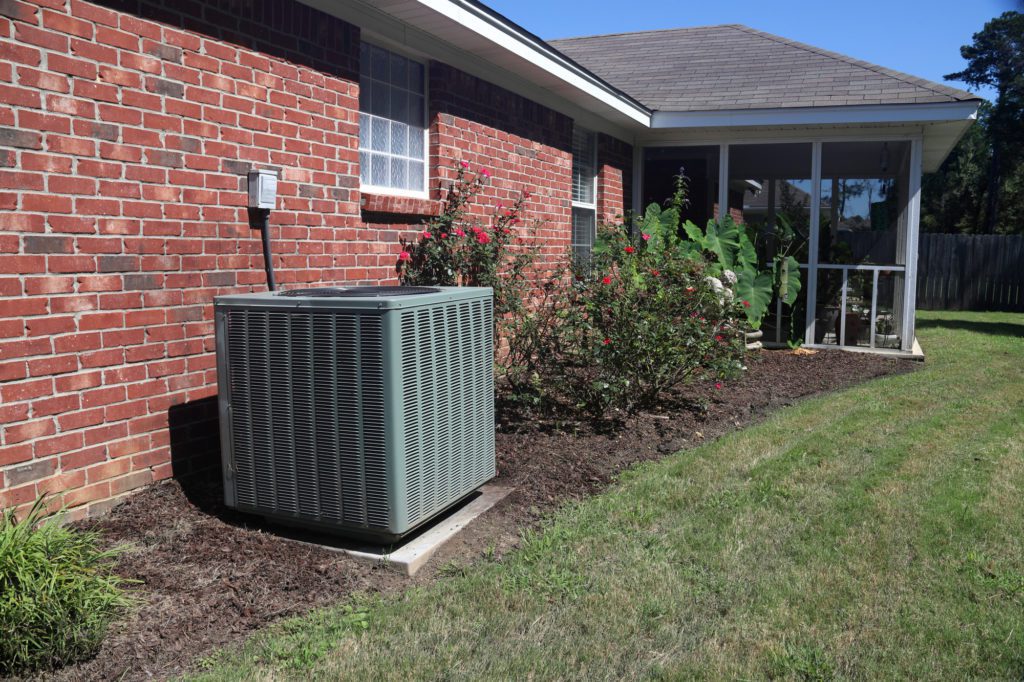
AC is a staple for American homes, with installations in around 90% of households.
Since we're so used to living with this luxury, things can get really uncomfortable when it breaks down.
If your AC's not working, you need to act fast. In this post, we'll tell you which problems to look out for.
Read on to find out how to keep your AC unit in shape.
How to Know When Your AC is Not Working
If you spot these tell-tale signs, it's time to call the experts.
1. It's Making Noises
Are you hearing squeaking, clunking or whirring sounds every time your AC is on?
Abnormal sounds like these are signs that something's not quite right. Perhaps a part has become loose or the unit is blocked by some kind of debris. In order to find out, you'll have to open it up and take a look.
2. The Thermostat Isn't Working
This is one of the most common problems with AC units.
If you find that the temperature of the air coming out of the system is wildly different to the temperature you set, the thermostat could be the root of the problem.
It could be completely broken, in which case you'll have to replace it. However, it could simply be poorly calibrated. The latter is an easy fix that you may be able to do by yourself.
3. Water is Leaking Out
It's always unpleasant when water is leaking out of your air conditioner, dripping onto your floors and furniture.
If you leave it this way for too long, the unit might fail altogether. On top of that, it can also cause damage to other parts of your home, costing you even more money over time.
4. It's Not Blowing Cool Air
Has your unit suddenly stopped producing cool air? Do you find that it doesn't cool down your home, no matter how low you set the temperature or how high you set the fan?
This could mean that your air conditioning unit is on its last legs.
It's often a sign that the compressor has failed, but if replacing that doesn't work for you, you'll have to get a new unit altogether.
5. Your Bills are Sky High
If your utility bills are skyrocketing, an inefficient AC system could be the culprit.
Ditch the dud and get a new one, and you'll reduce your costs as well as your carbon footprint.
6. It's Constantly Breaking Down
If you find that every time you fix one part of your AC, another part fails, it's best to cut your losses and replace the unit.
The amount you spend on repairs will be far higher than the cost of a new unit, so you'll save money in the long run.
Take Care of All Your AC Needs
If your AC's not working, we can help you.
At Ellsworth's Heating and Cooling, we specialize in HVAC services.
Whether you need a quick fix or an entirely new system, we can handle it for you. We'll take care of your unit's installation, plus any repairs and maintenance you need.
Learn more about our air conditioning services to see what we can do for you.
How to Find the Best Air Conditioning Contractor in Fort Myers
In 2018, the hottest day in Florida was recorded as 96 degrees Fahrenheit. As a resident of South West Florida, you never want to be stuck without a running air conditioner. For that reason, having a reputable HVAC contractor on hand is a must.
Here's how to find the best air conditioning contractor Fort Myers has to offer.
1. Ask Friends for Recommendations
Since you live in a region where the climate is consistently hot, you have the fortune of being surrounded by neighbors with HVAC systems. Most homes in Florida are equipped with central air, and each of those units needs HVAC servicing every now and then.
Trust your friends and neighbors. Word of mouth is the strongest promoter and also the strongest deterrent for new customers when it comes to any business.
Simply ask a few questions:
- Who do you use as your HVAC contractor?
- Can you recommend an AC contractor nearby?
- Is there any business you wouldn't recommend? If so, why?
If more than one neighbor gives you a strong recommendation for a particular business, that's a sure sign this is the right contractor for you.
2. Look up Air Conditioning Contractors in Fort Myers Online
Another reliable source for recommendations and reviews of any business is the internet. Whether you do a simple Google search or you inquire about businesses on your local Facebook group, a little bit of online research can go a long way.
After you do a basic Google search for Fort Myers HVAC contractors, look up the websites of the companies that catch your eye. The businesses that appear most intuitive and approachable online are likely to be reputable, honest, and well-organized.
As you browse each company's site, ask yourself the following questions:
- Does this contractor seem to be an expert in the HVAC business?
- Is this company friendly?
- Is there a lot of helpful and useful content on their website?
If a company or contractor wants to position themselves as an expert in the field, their site will likely have a helpful blog. That's where you can learn what to expect from your average maintenance visit, for instance. Keep in mind that expertise is a strong indicator of professionalism.
3. Look for a Better Business Bureau Rating
The Better Business Bureau is a neutral organization that keeps track of businesses in terms of reputation. Most legitimate businesses have a BBB rating.
If you've narrowed down your choices to two or three HVAC contractors in Fort Myers, search for each one on the BBB website. If each business is registered with the bureau, you'll find ratings and reviews for it.
Also, you will have a chance to see if there are any complaints filed against the business, as well as whether the complaints were resolved.
Are You Ready to Hire an HVAC Contractor?
Now that you are armed with these tips, you're all set to find the best air conditioning contractor Fort Myers has to offer.
Reputation, expertise, and a friendly disposition are all characteristics that make a company great to work with on a regular basis.
If you have any more questions about HVAC maintenance, visit our blog for more information straight from the experts. Contact us today to scheduled a maintenance call or to draft a regular maintenance plan.

